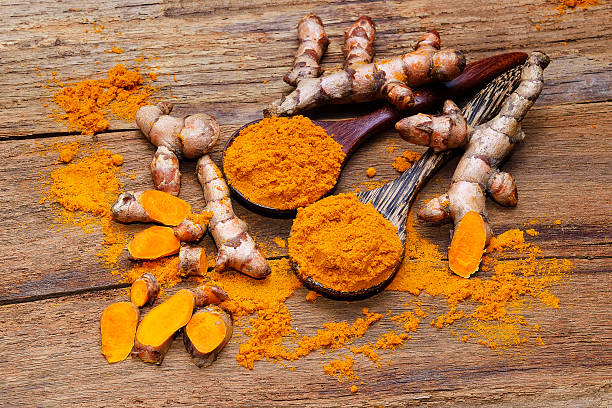
Conceptually, in Chinese medicine, we believe that herbal formulas should complement not only the individual’s constitution, but the season and setting that the person lives in. We are a part of our natural environment, and as a being in a diverse ecosystem, our health is impacted by our weather and climate. For a Chinese herbalist, integrating a nature-based perspective in a holistic treatment plan is as essential as understanding that symptoms of dry throat and skin may simply be a consequence of living in an arid climate rather than coming from an internal cause.
Five seasons are recognized in Chinese medicine, and each of these seasons is linked to one of the five Chinese elements. The winter season is associated with cold, a pathogen in Chinese medicine that can cause chills, contraction, stagnation, and even pain. Winter is also related to the water element, and from a physical or organ and channel-based perspective, related to the Kidneys. In Chinese medical theory, the Kidneys are a source of our vitality. The Kidney yin is the nurturing essence of the body, and the Kidney yang is the fire that warms the body.
As such, in winter, a season known for cold weather, it can be helpful, from an herbal perspective, to keep the fire burning and use herbs that help warm the body. From a dietary perspective, winter is a season for eating warm foods with warm spices, nourishing soups and broths, and hearty meals, rather than raw or cold foods.
Even without training in Chinese herbalism, a basic knowledge of warming herbs can be helpful in winter. Using spices and herbs in cooking can help you create nourishing stews and meals that taste good and make your body feel better. Let’s look at some Chinese herbs you may already know, that can help keep you warm in winter:
 Cinnamon bark (Rou Gui): Cinnamon, or Rou Gui, is a warming ingredient that can be a great addition to meals. Put a little in your coffee or tea to kick start your digestion in the morning, or in a tomato soup at night. As a Chinese herb, Rou Gui goes to the Heart, Kidney, Liver, and Spleen, and can help to warm and unblock the channels by dispersing cold. Moreover, Rou Gui can be used to nourish our Kidneyyang, that deep warming aspect of the body.
Cinnamon bark (Rou Gui): Cinnamon, or Rou Gui, is a warming ingredient that can be a great addition to meals. Put a little in your coffee or tea to kick start your digestion in the morning, or in a tomato soup at night. As a Chinese herb, Rou Gui goes to the Heart, Kidney, Liver, and Spleen, and can help to warm and unblock the channels by dispersing cold. Moreover, Rou Gui can be used to nourish our Kidneyyang, that deep warming aspect of the body.
 Ginger (Gan Jiang, Sheng Jiang): Ginger can be ingested in different forms, and each of these forms has different properties. Fresh ginger, or Sheng Jiang, is great for warming the Stomach and Lungs and can also help fight off colds. Dried ginger, Gan Jiang, is great for strongly warming the Spleen and Stomach and the channels, and it helps rebuild yang deficiency. Ginger can be used in all kinds of recipes, in sautéed greens and veggies with a little green onion and garlic, in soups or congees, or even made into a tea.
Ginger (Gan Jiang, Sheng Jiang): Ginger can be ingested in different forms, and each of these forms has different properties. Fresh ginger, or Sheng Jiang, is great for warming the Stomach and Lungs and can also help fight off colds. Dried ginger, Gan Jiang, is great for strongly warming the Spleen and Stomach and the channels, and it helps rebuild yang deficiency. Ginger can be used in all kinds of recipes, in sautéed greens and veggies with a little green onion and garlic, in soups or congees, or even made into a tea.
 Clove (Ding Xiang): Clove, or Ding Xiang, is another herb that can warm the center of the body and also supports and builds the Kidney yang. You may have heard of clove paired with cinnamon and nutmeg in pumpkin pie, but take away the sugar and dairy, and clove is a great addition to pumpkin, squash, carrot, or sweet potato. Be careful, a little bit goes a long way.
Clove (Ding Xiang): Clove, or Ding Xiang, is another herb that can warm the center of the body and also supports and builds the Kidney yang. You may have heard of clove paired with cinnamon and nutmeg in pumpkin pie, but take away the sugar and dairy, and clove is a great addition to pumpkin, squash, carrot, or sweet potato. Be careful, a little bit goes a long way.
Tumeric (Jiang Huang): Tumeric, or Jiang Huang, is a classic spice often featured in Indian cuisine or curries (see photo at the top of this post). In Chinese medicine, it’s both a warming and moving herb, often used to move qi and blood and to eliminate pain and stagnation. It has an affinity for the upper body and particularly the shoulder area. In the winter, it’s a great addition to soups and stews, veggies, or even as a spice for chicken or fish.
The Chinese herbs noted above can be used by home cooks as a simple way to help keep warm in the winter. Please consult your herbalist if you plan to use these herbs medicinally, as they may not be appropriate choices for all constitutions.